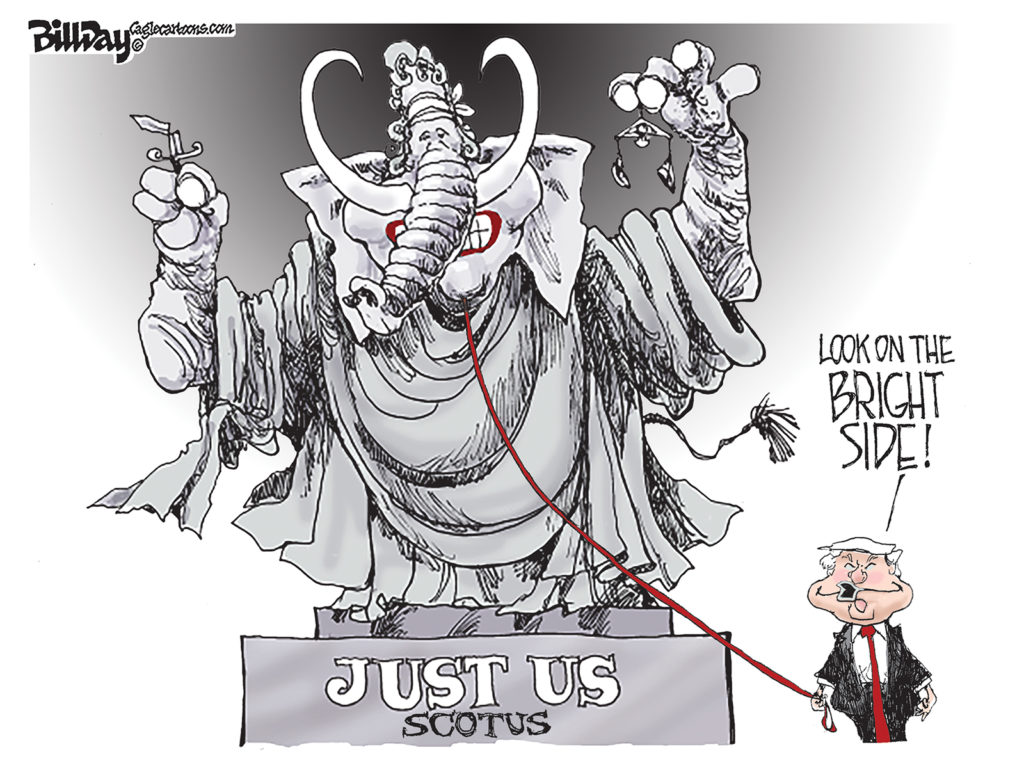There are PILOTs and then there are PILOTs.
We all know about the oft-used kind that waives about $50 million a year in property taxes for companies promising jobs and construction. Less know are PILOTs paid by utility companies, including MLGW, to local governments in return for their tax-exempt status.
But a new voluntary PILOT is taking shape in a number of cities and in light of City of Memphis’s budgetary dilemma, it may be an idea for our city as well – ways that nonprofits, particularly hospitals and universities, are required to make PILOT payments since they own a lot of land, consume government services and pay to taxes.
Volunteers Wanted
The PILOT payments for nonprofits tend to be voluntary because of the considerable influence of these tax-exempt institutions, but while it is a nascent movement, Harvard University and Yale University pay their local governments $5 million and $7 million respectively. MIT, Princeton University, and the University of California at Berkeley pay more than $1 million.
In addition, a number of the leading hospitals in the U.S. are making payments, such as Johns Hopkins which agreed to pay $10.4 million over four years in 2001 as an alternative to the city-proposed energy tax.
In Pittsburgh, a voluntary PILOT from University of Pittsburgh and Carnegie Mellon University was increased in return for the city’s elimination of a plan to pass a 1% tax on all tuition paid by college students. In some states, budgetary woes have sparked discussions in their legislative bodies, notably Hawaii and Georgia, about eliminating various nonprofits’ tax exemptions, but so far at least, it seems more like a shot across the bow to get the nonprofits to the negotiating table more than anything else.
A New Look
The executive director of the Indiana Association of Cities and Towns said: “We’re having to look at the public services nonprofits use and how we can adequately cover those costs. We can’t give them away for free any longer.” That said, it’s no denying that the nonprofits themselves are hurting as a result of the recession, but looking for the time when financial trends get more favorable, more cities, counties and states are at least putting the issue squarely on the table.
There was a time when Philadelphia had the most aggressive “payments-in-lieu-of-taxes and services-in-lieu-of-taxes.” There, nonprofits owned 25.2% of city property with an assessed value of $3.1 billion, but they were exempt from $45.6 million in property taxes and $55.1 million in school district taxes. Under a program begun in 1994, 42 “voluntary contributions” agreements were negotiated, generating $2.9 million in cash and $3 million in contributed services to city government. The Philadelphia school district received $3.5 million in cash. However, payments winnowed down to less than $1 million a year after a state law calmed fears from the nonprofits that their tax-exempt status was at risk unless they paid the voluntary PILOTs.
Although payments are voluntary, city governments are certainly in a strong position to encourage them since they have authority over zoning, permitting, and code enforcement. Meanwhile, the nonprofits are consumers of public services, including roads, fire protection and law enforcement.
Budget ICU
According to a new report by the Lincoln Institute of Land Policy, nationwide, the tax exemption for nonprofits could total as much as $32 billion. The report – the most comprehensive account of PILOT programs in use – said that since 2000, 117 cities and 18 states have used PILOT programs to increase their revenues. While PILOTs remain a revenue source worth pursuing, it must be methodical and justifiable, correcting processes that have been haphazard, secretive and ad hoc.
Remember the anecdote about prolific bank robbery Willie Sutton being asked why he robbed banks. His answer: “Because that’s where the money is.” That too is why cities are targeting hospitals. Although they make up only 0.6% of the nonprofits registered with the IRS, hospitals account for 40.2% of the revenues and have 24.3% of the assets.
By way of comparison, higher education makes up 0.4% of nonprofit organizations, generates 10.9% of revenues and holds 17.9% of assets.
Accompanying new interest in voluntary PILOTs for nonprofit hospitals is a renewed interest in determining if they are meeting states’ charitable standards. Already, this has produced rules in Utah requiring charity care plans, for publicizing the opportunity for charity care and for providing charity care commensurate with the value of their property tax exemptions. In a few places, there have been questions about why nonprofit hospital executives are making seven-figure salaries, but so far, that’s been a minor theme.
New Money
The momentum behind this new interest in taxing nonprofits comes from city budget officials who face bleak options for the future. The National League of Cities reports that pessimism about meeting city fiscal needs is at its highest level and budget shortfalls are expected to worsen through 2012.
According to the Lincoln Institute study, nonprofits in Memphis have 1.9% of the total property value in Memphis, which seems low to us and we’re trying to double check it. The report characterized it as a rough estimate.
The case in support of the PILOTs is pretty direct: nonprofits should pay for the public services they consume. Based on the lessons of several cities, it seems that a carrot rather than stick approach could yield the best results. There’s little question to us that most of the nonprofits here that would qualify for a PILOT payment have well-developed civic consciences and an appeal to community responsibility is the best way to approach this subject with them.
One thing is inarguable: local government has little option but to look for new revenues in new places. The budget would be lean in the best of times, but gripped by the recession, City of Memphis has to consider new tax sources. When you add the $57 million that has to be found to pay Memphis City Schools, it’s nothing short of imperative.




What must be taken into consideration is the value these non-profits maintain in terms of services provided to the surrounding community. I am not suggesting that every church for example is returning to the city its property value worth of services, but many do have programs to benefit those in need. Other non-profits are able to operate in pursuit of their goals only as non tax contributing entities. To upset this model would mean the city would be forced to consider assuming these services if taxation resulted in a decrease in outreach programs.
In the particular case of hospitals, universities, and community service organizations such as MLGW, some of this discussion seems like an exercise of robbing Peter to pay Paul. The additional costs would in turn be passed along to the public via taxes and service fees. In the case of service fees in health care and utilities, I question whether this would in fact have a disproportionate impact on those least able to afford the additional costs. As for public universities, some of the additional cost could be shouldered by the state. Other costs would undoubtedly find their way into tuition and student fees. This would only hinder the goal of increasing the area’s average educational attainment level by distancing the affordability of continued educational opportunities.
Urbanut: We think the value of services argument can be made for social and human services nonprofits (as the report we cited points out), but it’s hard to make the case for hospitals and most universities. The thing is that there’s little reason that taxpayers should subsidize their public services and in the end, City of Memphis’s financial interests should not be subjucated to other public and nonprofit organizations unless it is clear, as it is with social service nonprofits, that city costs could increase if these services were provided by City of Memphis.
MLGW already pays PILOT as does TVA.
Sorry, my inclusion of MLGW was definitely in error.
I am still very hesitant to increase the financial demands made upon a public university at a time when we are trying to increase participation by the local population in furthering their education. We would need to understand how would such financial payments be incurred by the school and how would it impact student fees.
I really appreciate the Princeton example, but it left out some of the story which actually would go to support the article’s point. Having worked in Princeton for some time, I was fortunate enough to encounter part of the university- property tax debate in that area. It is a very contentious issue in Princeton borough and the surrounding township. According to Bloomberg Businessweek, the university actually paid over $10 million last year alone in the form of property taxes and sewer fees. In addition to this, the university also continued its annual “voluntary” payment of $1 million (which is adjusted upward annually at the same percentage as the borough tax rate). Princeton borough and township contend that the combined payments for their 2 communities would total somewhere around $38 million if none of the university’s property were exempt.
While the university does in fact represent one of the largest land owners and land uses in the town it also serves as perhaps the major source of income and economic activity as well. The university drives much of the issues that require township and borough funding such as highly congested roadways, affordable housing as well as the usual police and fire services. The borough argues, and rightly so, that the services being provided are at a much greater scale than would otherwise be found in a town with a similar population and these services are being shouldered almost entirely by the residents of the borough. The university argues that the economic benefits, including a prosperous and vibrant commercial district (Nassau Street), cultural events and facilities unlikely to be located in such a small town alone, employment opportunities at the university and the desire of major employers to be located near the university more than offset the costs associated with the university’s location.
I cannot see where the issue is as evenly divided between the University of Memphis and the city. Where there is certainly economic activity generated along Highland based entirely on traffic generated by the university, the correlation between the university and surrounding property values does not appear to be nearly as conclusive.